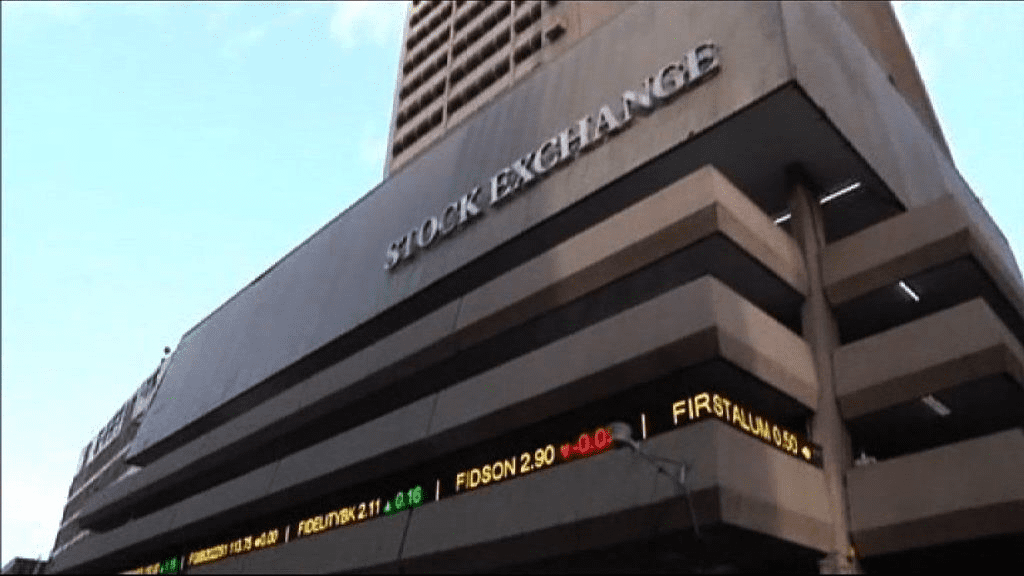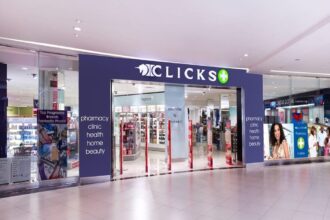At a Glance
- Dangote Cement leads Nigerian Exchange with $4.9 billion valuation.
- Domestic investors account for 82% of trading volume.
- Nigerian Exchange sees record $3.968 trillion equities traded.
The Nigerian Exchange Limited (NGX) continues to showcase robust market activity, driven by strong domestic investor participation and record-breaking equities trading.
As of September 2024, the NGX recorded equities trading worth N3.968 trillion($2.39 billion), a significant jump from N2.712 trillion($1.63 billion) in the same period of 2023. Domestic investors accounted for 82.44 percent of the total trading volume, while foreign investors contributed 17.56 percent.
Based on data from the Nigerian Exchange (NGX), analyzed by Shore.Africa, here is the ranking of the NGX’s top ten most valuable companies highlighting the strength and diversity of Nigeria’s corporate sector as of Sept. 30, 2024, amidst a thriving market environment.
1. Dangote Cement Plc
Market Cap: N8.16 trillion ($4.9 billion)
Sector: Construction
Dangote Cement leads as the most valuable company on the Nigerian exchange (NGX), valued at N8.16 trillion ($4.9 billion), representing 14 percent of the market. Starting 2024 at N 319.90($0.192), it has gained 50.05 percent as of the close of market sessions on November 15, 2024, ranking 38th in year-to-date performance. Known for its dominance in the African cement industry, the company continues to drive infrastructure development across the continent, contributing significantly to Nigeria’s industrial growth.
Market Cap: N8.11 trillion ($4.87 billion)
Sector: Telecommunications
Airtel Africa ranks a close second with a market capitalization of N8.11 trillion ($4.87 billion), representing 13.7 percent of the exchange’s equity market. The stock opened in 2024 at N 1,887($1.136) and has since risen 14.3 percent, ranking 76th year-to-date and thus reflecting the rising demand for telecommunications and digital services. With operations across 14 African countries, the company remains a cornerstone of Nigeria’s digital transformation.
Market Cap: N7.11 trillion ($4.27 billion)
Sector: Food and infrastructure sector
BUA Foods underscores Nigeria’s expanding consumer goods sector ranking as the third most valuable stock on NGX, with a market capitalization of N7.11 trillion ($4.27 billion)—12 percent of total market equity. Starting 2024 at N 193.40($0.116) per share, it has gained 104 percent, ranking 18th year-to-date on NGX. Its leadership in sugar, flour, and edible oils positions it as a major player in Africa’s food and agribusiness landscape.
4. MTN Nigeria Plc
Market Cap: N3.57 trillion ($2.14 billion)
Sector: Telecommunications
MTN Nigeria, the country’s top telecom provider, is the fourth most valuable stock on the NGX, with a market cap of N3.57 trillion ($2.14 billion), representing 6.03 percent of the exchange. Despite a 35.6 percent decline in share price since January, ranking 148th for year-to-date performance, MTN remains committed to bridging connectivity gaps and providing vital digital solutions to millions of Nigerians.
5. Seplat Energy Plc
Market Cap: N3.32 trillion ($2 billion)
Sector: Oil and gas sector
Seplat Energy highlights Nigeria’s pivotal role in driving economic growth through its oil and gas sector. With a market cap of N3.32 trillion ($2 billion), Seplat Petroleum is the fifth most valuable stock on the NGX, representing 5.6 percent of total equity. Starting the year at N2,310($1.39), the stock has surged 144 percent, ranking 14th in YTD performance. Seplat’s gas development investments support Nigeria’s energy transition goals.
6. BUA Cement Plc
Market Cap: N3.23 trillion ($1.99 billion)
Sector: Construction
BUA Cement, Nigeria’s second-largest cement producer, mirrors Dangote Cement’s success in infrastructure development. With factories in Sokoto, Okpella, and South-South Nigeria, its combined plant capacity exceeds 11 million metric tons annually. Ranking 6th on the NGX with a market cap of NGN 3.23 trillion ($1.99 billion), BUA Cement accounts for 5.46 percent of the market, solidifying its position in Nigeria’s construction sector.
7. Geregu Power Plc
Market Cap: N2.88 trillion ($1.73 billion)
Sector: Power
Geregu Power, the seventh most valuable stock on the NGX with a market cap of N2.88 trillion ($1.73 billion), represents 4.85 percent of the market. Its share price has surged 188 percent from N399.00($0.240) at the start of the year, ranking 10th in year-to-date performance. The company’s focus on efficient energy production fuels its impressive market valuation.
8. Transcorp Power Plc
Market Cap: N2.7 trillion ($1.62 billion)
Sector: Power
Transcorp Power, a subsidiary of Transnational Corporation of Nigeria, drives Nigeria’s energy self-sufficiency push. It ranks 8th on the NGX with a market cap of N2.7 trillion ($1.62 billion), representing 4.56 percent of the exchange. Since its March 4, 2024 IPO at N264($0.159), the stock has gained 36.3 percent, ranking 47th in year-to-date performance, while continuing to deliver reliable electricity nationwide.
9. Aradel Holdings Plc
Market Cap: N2.32 trillion ($1.39 billion)
Sector: Energy
Formerly Ardova Plc, Aradel Holdings mirrors Nigeria’s evolving energy landscape, blending traditional oil production with renewable energy investments. Ranked 9th on the NGX with a market cap of NGN 2.32 trillion ($1.39 billion), or 3.92 percent of the exchange, the stock closed its IPO day (Oct 14, 2024) at NGN 772.90($0.465). Since then, it has dropped 30.9 percent, ranking 145th in year-to-date performance.
10. Guaranty Trust Holding Co. Plc
Market Cap: N1.65 trillion ($990.53 million)
Sector: Financial services
GTCO, Nigeria’s leading banking institution, is renowned for its innovative financial solutions and robust retail and corporate banking services. The bank ranks 10th on the NGX with a market cap of N1.65 trillion ($990.53 million), representing 2.78 percent of the exchange. Its stock has gained 38.3 percent year-to-date, placing 45th for performance. The NGX list highlights the dominance of the industrial, telecommunications, and energy sectors, which are driving Nigeria’s economic growth. With rising investor confidence and increased domestic participation, the exchange is poised for continued upward momentum.















